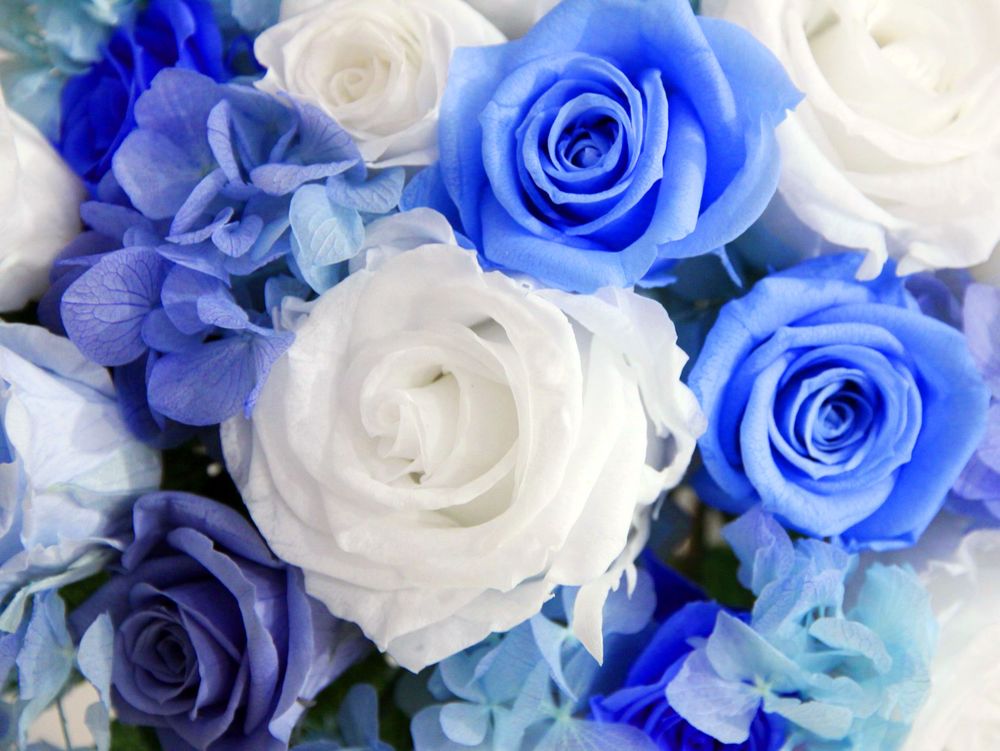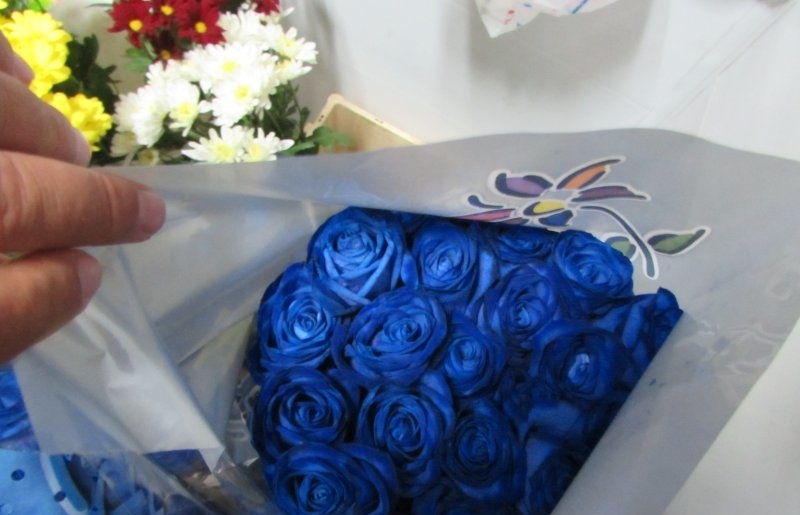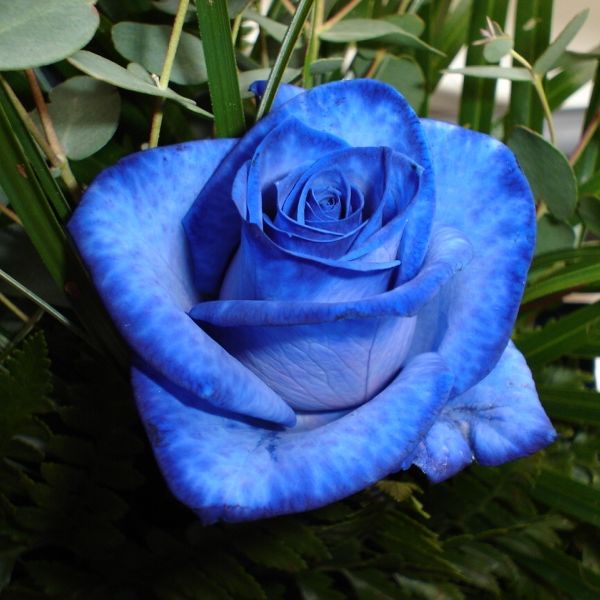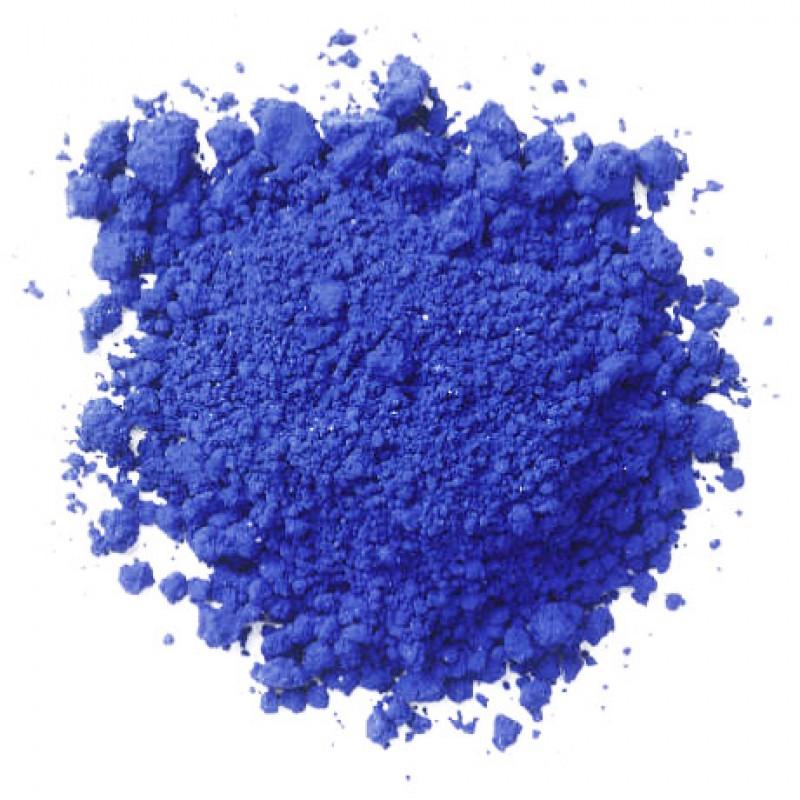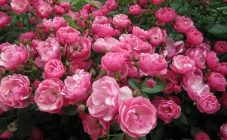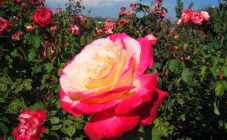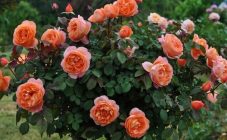Content:
For more than a dozen years, roses have been decorating various events and celebrations. At the moment, breeders have bred more than 15,000 different varieties of this floral plant. The culture can be distinguished by the shape of the foliage and petals, the length of the stem, the splendor of the inflorescences, as well as the absence or presence of prickly thorns and the color of the buds.
As soon as a person sees a garden bed where blue roses bloom, or a bouquet made up of these wonderful flowers, he wonders if such a plant actually exists in nature. And if not, then how can the rose be given such an unnatural shade and background?
Do roses with blue petals exist in nature?
The existence of the blue rose is a real mystery, shrouded in darkness. On the shelves of garden shops you can see saplings or seeds of a rose, in the name of which there is a prefix "blue" or "blue", although in fact the inflorescences have a lilac or lilac hue. In almost every store you can find luxurious bouquets of flowers that have a deep blue color. Is it realistic to grow such incredible flowers in personal plots?
Scientists began to transplant the gene of forget-me-nots to varieties of roses, which had a pink, white and burgundy shade of inflorescences. For two decades, breeders have carried out experiments, the result of which was the breeding in 2009 of the variety Applause. If we consider all the hybrids of roses existing at that time, then the representatives of this variety were the most blue. But it is worth noting that they never became popular for the reason that they were highly allergenic.
The maximum achievement of breeders, which became available to everyone who wanted to grow a plant of an unusual color, was the receipt of climbing roses, the inflorescences of which were lilac and lilac. With the correct growing scheme, the flowers could briefly change their color to a bright blue shade.
If you ask the question, where did blue roses appear on the shelves of flower shops, a very simple answer follows: such an unusual shade is obtained by dyeing the buds using food dyes. You can also use conventional spray paint on rose petals. This procedure can be easily done at home and save a certain amount for buying a ready-made bouquet.
What does the blue rose represent?
During the Victorian era, people used flower cultures to express feelings and emotions. The number of flowers in the bouquet, as well as the size and variety, were of no small importance. But plant buds are endowed with a special meaning. Due to their unusual color, blue roses are even more popular than traditional flowers. Breeders tried in vain to get roses with blue buds, so many florists resorted to coloring flowers with dyes.
An amazing flower like a blue rose can be obtained by adding a few drops of a special dye to the water for plants.The color of the buds can vary from light blue to dark blue, depending on the amount of dye in the liquid.
Each color has a unique meaning:
- The lilac shade indicates the first love, and is also a symbol of admiration and charm.
- Dark purple roses are perfect for beautiful owners of red hair.
- Blue plants, the flowering of which is distinguished by originality and mystery. Designed for mysterious and inaccessible personalities, to emphasize their uniqueness.
Blue roses also symbolize an unattainable ideal, which can only be approached with great effort. Rudyard Kipling believed that the blue rose was a symbol of death. This is because such a flower could not be given to living brides, because it did not exist in nature.
How to properly paint roses blue: instructions
Before you start dyeing a rose blue, you need to choose a high-quality food coloring that will not have a negative effect on the plant. You need to take a tall vase of water and add 2 teaspoons of dye.
Instead of food coloring, you can use ordinary blue or ink. Be sure to ensure that no sediment forms on the bottom of the vase. As soon as the flower solution is ready, it is necessary to assess its shade - the substance must be dark so that the color of the rose is bright.
The next step is to prepare the rose for the staining procedure. For this, it is recommended to give preference to freshly cut closed white buds. In the flower shop, you can buy plants whose petals are dotted with green veins - this fact indicates that the flowers are fresh. In order to properly prepare the cut, you need to take a sharp knife or garden shears and cut off the tip of the stem obliquely. The larger the cut area, the faster the roses will turn blue. Experienced florists make a gap in the stem, thereby splitting it. You can use a cruciform notch to help the dye penetrate quickly into the stem.
The direct staining process lasts for 2-3 days. You can get a richer rose color with a dark solution (add a little more food paint). Experts recommend leaving the vase of flowers on the balcony or in the refrigerator for the entire staining period.
Recommendations for quickly staining roses blue
If you don't want to wait 2-3 days for the culture to turn blue, you can resort to faster staining. It consists in applying spray paint to the petals of the plant. You can buy special paint at almost any florist store. If you paint a flower with ordinary paint, it will harm the plant and completely destroy its aroma. The result of this "experiment" will be a plant that will have a pungent smell of paint.
Today, rainbow roses are popular, acquiring their color as the flowers grow. For this, a solid blue dye must be implanted into the crop stem.This process is similar to the procedure for grafting a plant, the only difference is that instead of a sprout, a rod with paint must be tied to the stem. The result is a full-fledged rose with petals of an unusual blue hue. The color of each bud may be slightly different from each other, as the dye is not absorbed evenly.
At home, getting blue roses is more than possible. The stem must be split into two equal parts, and then put the flowers in a vase with a blue dye solution. It is recommended to change the coloring agent every day. With this method, you can get a smooth transition of the shade of the plant, from pale blue to dark blue.
